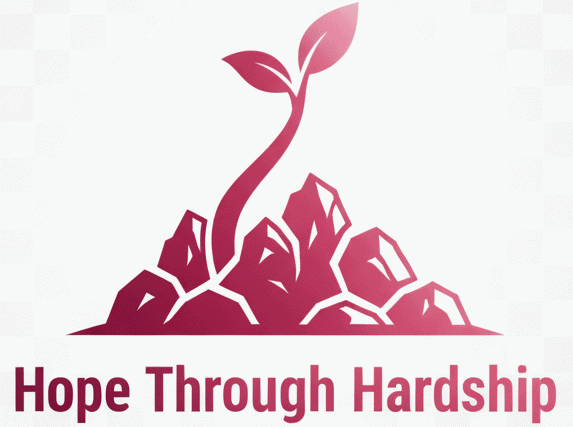
Life’s most extraordinary transformations happen Growth when you step beyond familiar territory. However, most people cling to predictable routines because uncertainty feels threatening. Nevertheless, personal development flourishes precisely where comfort ends and challenge begins.
Understanding the Comfort Zone Psychology
Your comfort zone isn’t just a mental state—it’s a neurological fortress. Furthermore, your brain evolved to prioritize safety over growth. Consequently, staying within familiar boundaries triggers dopamine release, creating addictive patterns of sameness.
Think about riding a bicycle for the first time, and initially, wobbling, terrified, you. Moreover, falling seemed inevitable. Yet through persistent practice, breakthrough moments emerged. Similarly, professional athletes constantly push physical limitations. Therefore, they achieve seemingly impossible feats.
The Science Behind Discomfort and Growth
Neuroscientists discovered that comfort zone expansion rewires your brain. Additionally, facing challenges activates neuroplasticity—your brain’s ability to form new neural pathways. Meanwhile, avoiding discomfort shrinks these pathways, limiting potential.
Research shows that moderate anxiety enhances performance significantly. Furthermore, this “optimal anxiety” zone maximizes learning capacity. However, excessive stress becomes counterproductive. Therefore, finding the sweet spot between comfort and panic becomes crucial for development.
Breaking Through Mental Barriers
Mental barriers often prove more limiting than physical ones. Additionally, self-doubt whispers lies about your capabilities. Nevertheless, overcoming fears requires confronting these internal narratives directly.
Consider entrepreneurs who launch startups despite uncertain outcomes. Moreover, they embrace failure as valuable feedback rather than defeat. Similarly, public speakers transform terror into confidence through repeated exposure. Therefore, courage isn’t the absence of fear—it’s action despite fear.
Practical Strategies for Comfort Zone Expansion
Start small but stay consistent. Furthermore, micro-challenges build confidence gradually without overwhelming your system. For instance, strike up conversations with strangers weekly. Additionally, try unfamiliar cuisines or explore new neighborhoods regularly.
Personal growth strategies include setting progressive goals that stretch your abilities. Moreover, accountability partners provide external motivation when internal drive wavers. Meanwhile, tracking progress visually reinforces positive momentum. Therefore, celebrating small wins maintains long-term commitment.
Create artificial deadlines for important decisions. Additionally, this prevents endless deliberation that maintains the status quo. Furthermore, commit publicly to significant changes—social pressure becomes a powerful motivator. However, ensure goals align with genuine values rather than external expectations.
Real-World Examples of Comfort Zone Success
Oprah Winfrey transformed childhood trauma into media empire leadership. Furthermore, she consistently tackled uncomfortable conversations about difficult topics. Similarly, Sara Blakely revolutionized the fashion industry despite lacking business experience. Therefore, their success stories prove that discomfort catalyzes extraordinary achievements.
Professional athletes exemplify comfort zone mastery perfectly. Moreover, they endure grueling training regimens that ordinary people would find unbearable. Additionally, they compete under immense pressure while maintaining peak performance. Nevertheless, this constant challenge of expansion creates champions.
The Compound Effect of Consistent Growth
Small daily actions outside your comfort zone compound dramatically over time. Furthermore, each courageous step expands your capacity for future challenges. Additionally, confidence builds exponentially as you prove your resilience repeatedly.
Consider language learning—initially, pronunciation feels embarrassing. However, consistent practice transforms hesitation into fluency. Similarly, leadership skills develop through uncomfortable feedback conversations. Therefore, compound growth occurs when discomfort becomes your preferred operating environment.
Common Obstacles and How to Overcome Them
Fear of judgment paralyzes many potential growth opportunities. Additionally, perfectionism creates unrealistic standards that prevent action entirely. Nevertheless, recognizing these patterns enables strategic intervention.
Reframe failure as essential data collection rather than personal inadequacy. Moreover, embrace the “beginner’s mind” that welcomes learning opportunities. Furthermore, surround yourself with growth-oriented individuals who celebrate progress over perfection. Therefore, your environment significantly influences your willingness to take risks.
Building Your Comfort Zone Expansion Plan
Identify specific areas where you’ve become too comfortable. Additionally, assess which skills would most benefit your personal or professional development. Furthermore, create a timeline with measurable milestones to track advancement.
Action planning requires honest self-assessment and realistic goal-setting. Moreover, anticipate obstacles and develop contingency strategies beforehand. Meanwhile, establish reward systems that reinforce positive behavior changes. Therefore, systematic approaches increase success probability dramatically.
Start with your most compelling “why”—the deeper purpose driving your growth desire. Additionally, connect daily actions to this larger vision for sustained motivation. Furthermore, visualize the person you’ll become through consistent comfort zone expansion. However, focus on the process rather than just the outcomes.
The Ripple Effect of Personal Growth
Your comfort zone expansion impacts everyone around you. Furthermore, courage becomes contagious when others witness your transformation. Additionally, you unconsciously permit others to pursue their growth journeys.
Children especially benefit from observing adults who embrace challenges courageously. Moreover, they learn that discomfort signals opportunity rather than danger. Similarly, colleagues gain inspiration from your willingness to tackle difficult projects. Therefore, personal development creates positive ripple effects throughout your entire network.
Conclusion: Embracing Your Growth Journey
All growth starts at the end of your comfort zone—this isn’t just motivational rhetoric but scientific truth. Furthermore, every expert was once a beginner who chose discomfort over stagnation. Additionally, your future self depends on today’s willingness to feel uncomfortable.
The path forward requires intention, courage, and persistence. However, each step beyond familiar territory expands your world exponentially. Therefore, embrace discomfort as your greatest teacher and most reliable guide toward the extraordinary life you deserve.

